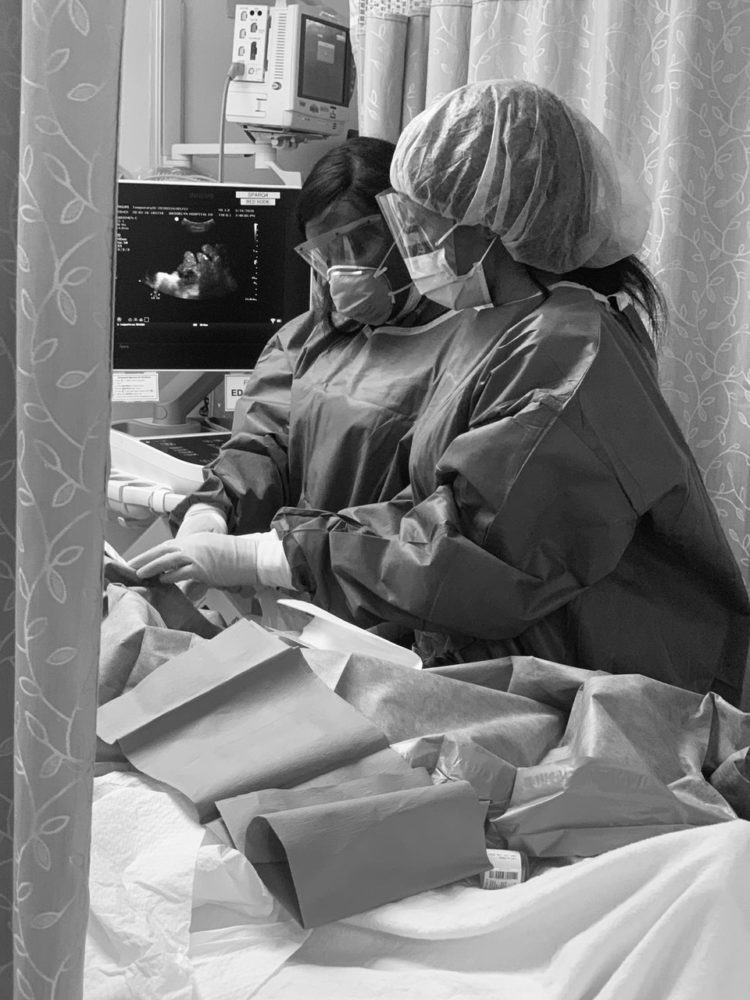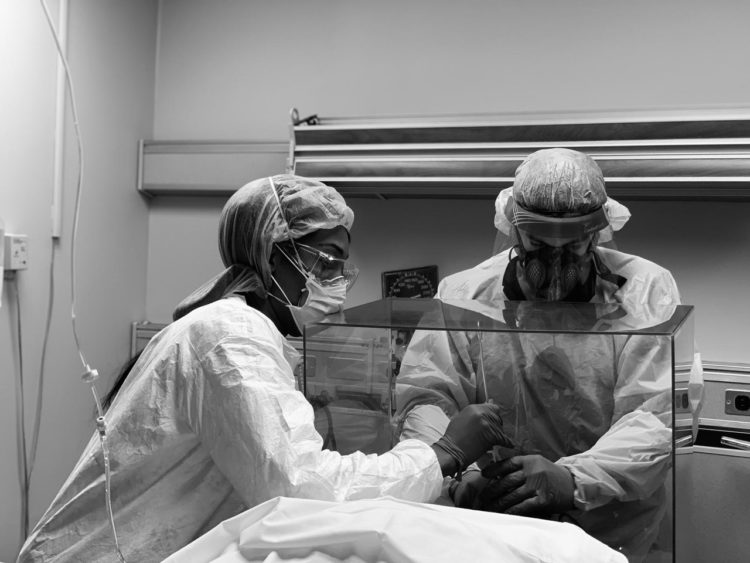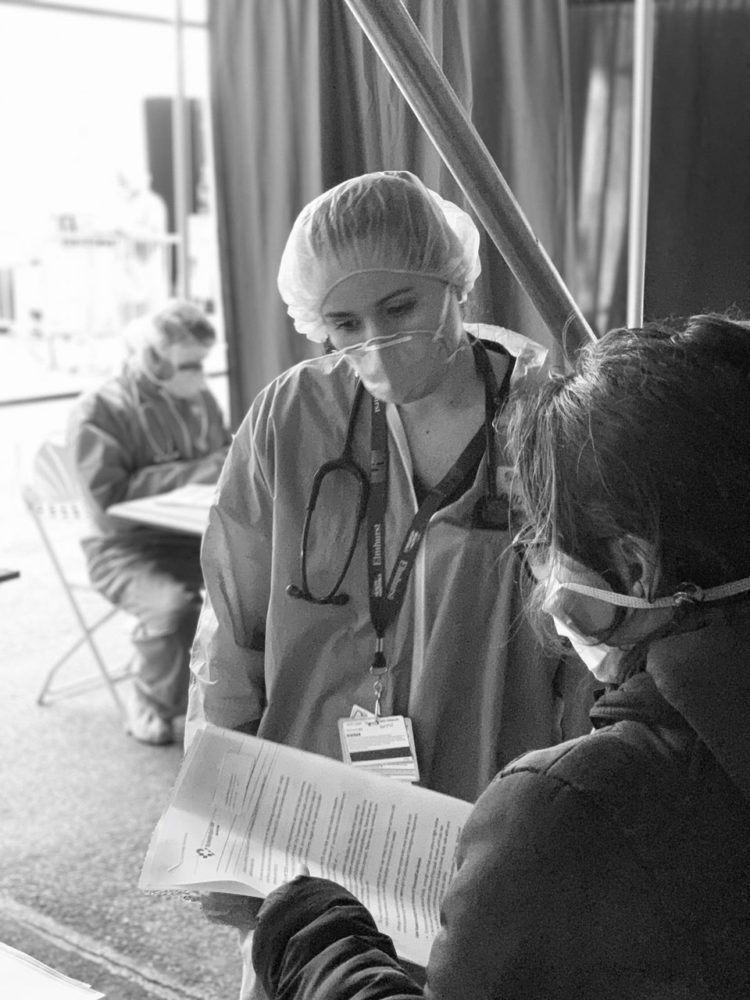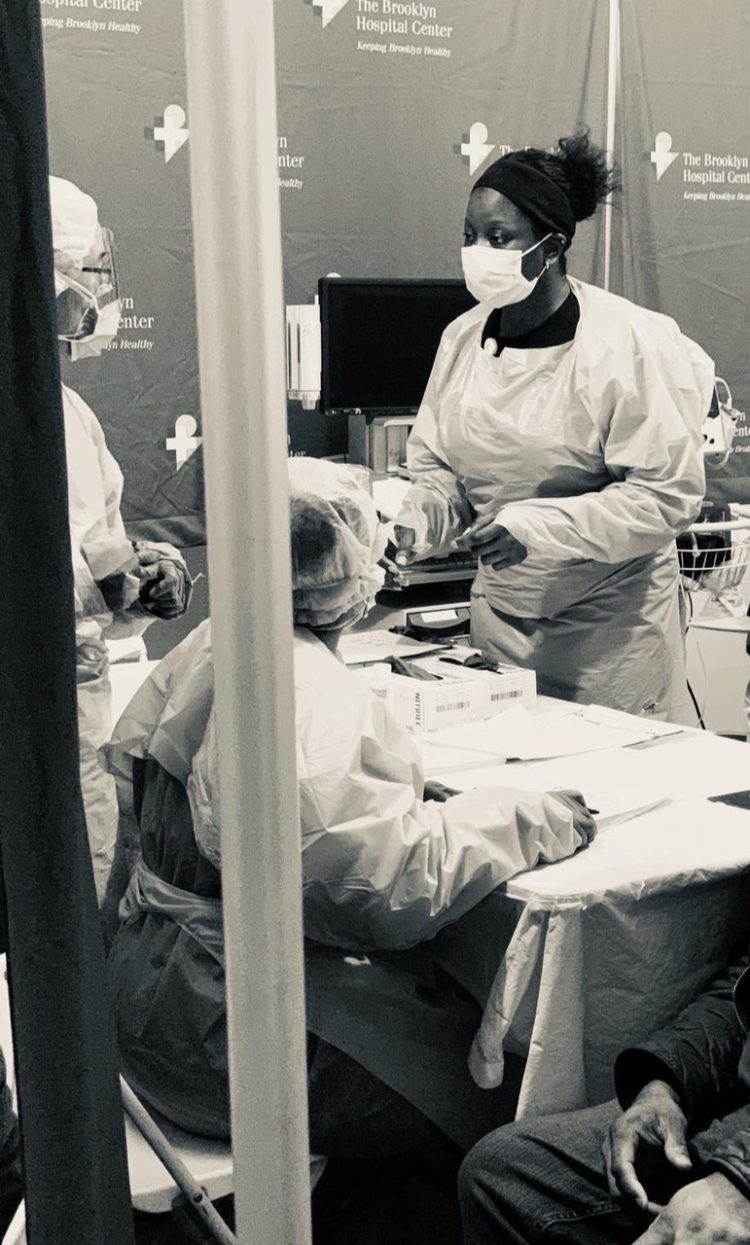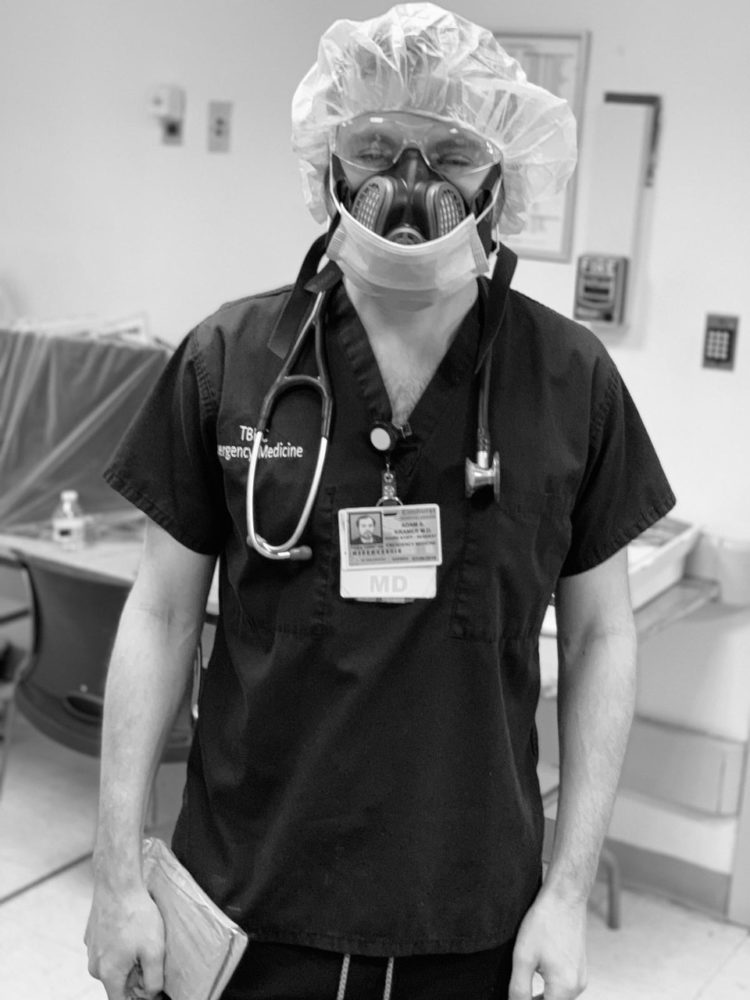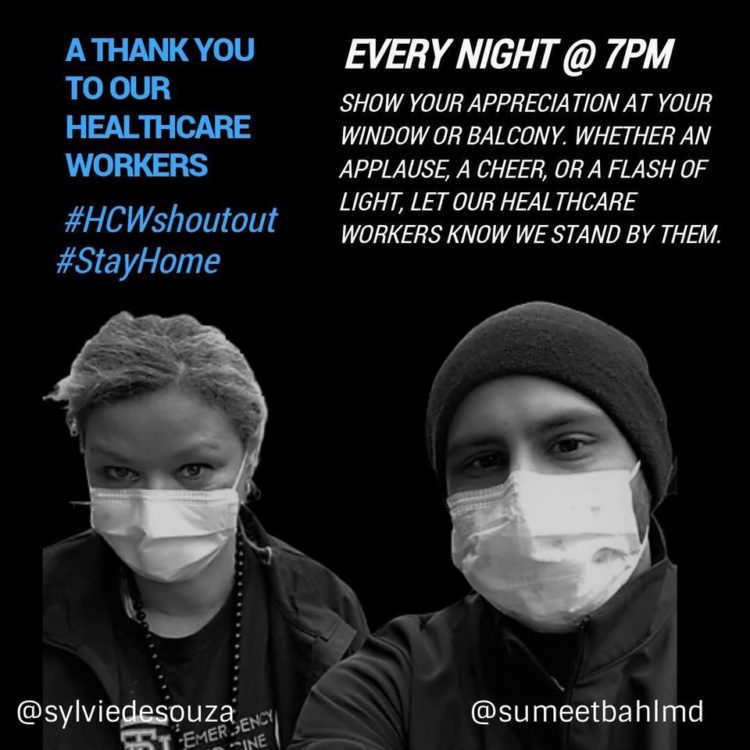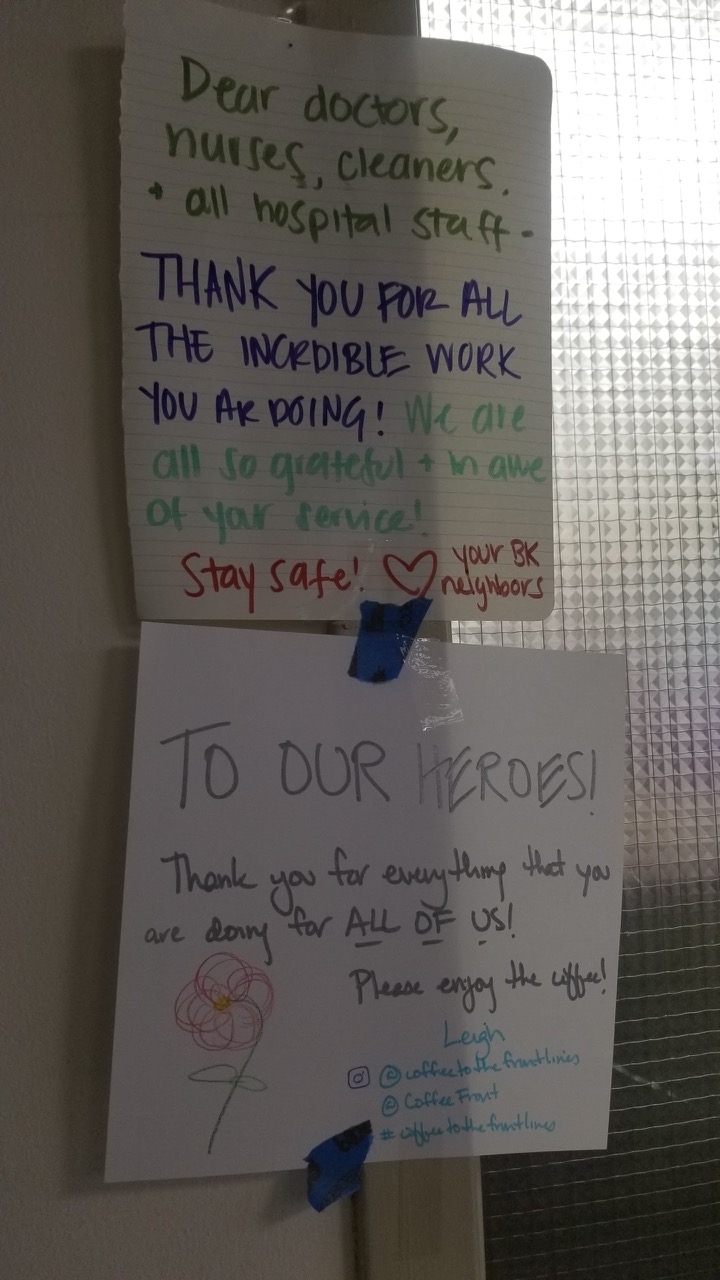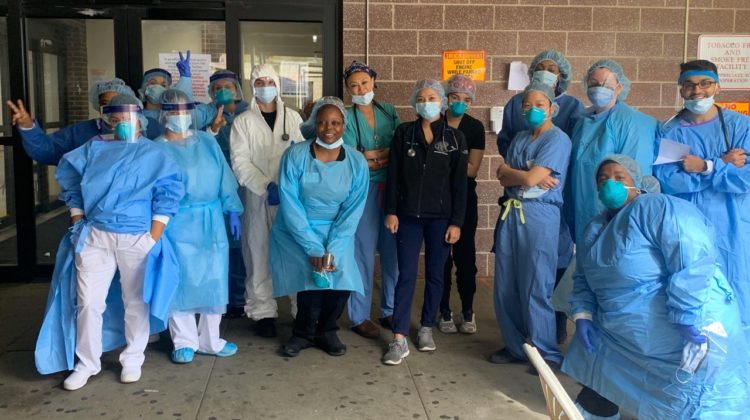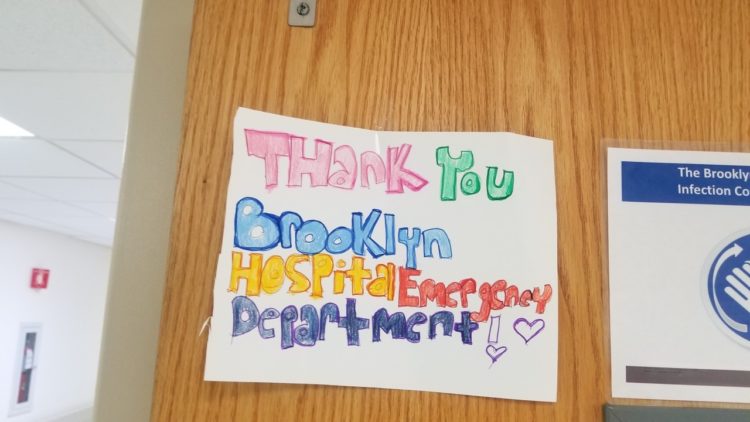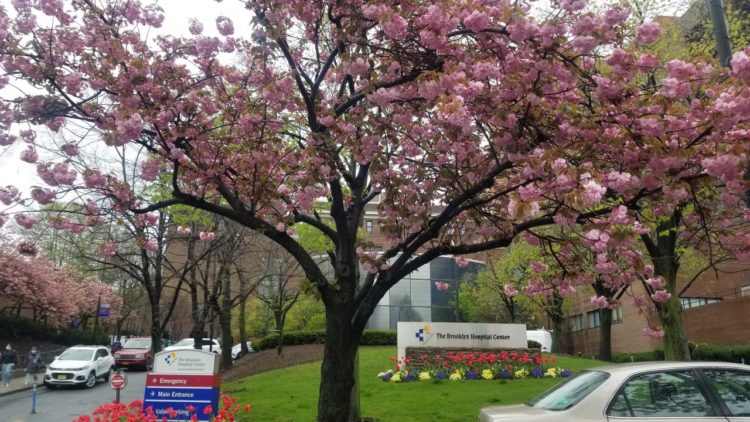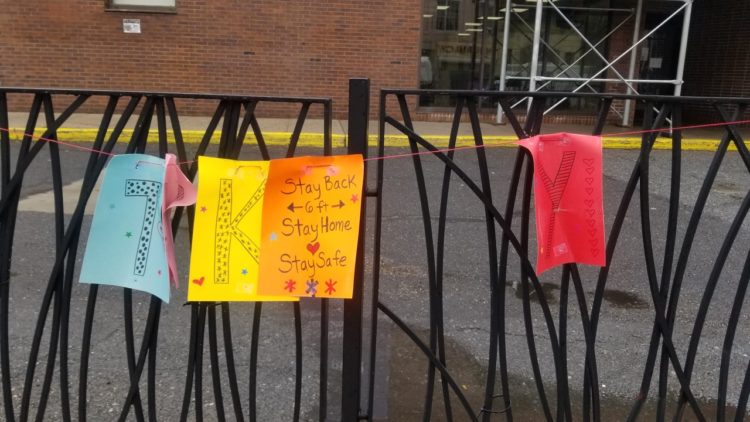As demographic reports start to come out, showing how black communities in America are being hammered by the coronavirus, hospitals across New York City have been in the spotlight. On March 26th, the Brooklyn Hospital Center, located in the Fort Greene neighborhood, was the subject of this front page New York Times article. Dr. Sylvie de Souza-ViBi, the chair of emergency medicine at that 175-year-old hospital, was the lead of the article. She is on the far left in the first photo. She traces her roots to Ouidah, on the coast of Benin. She wrote this story for TRUE Africa. The photos were taken by her colleague, Dr. Adebanke Adebayo, whose family is from Nigeria.
We trained most of our lives to be ready and able to face the unknown every day we come to work. We are emergency physicians, “ER docs,” as we are familiarly called. This is what we do. We meet people from all walks of life, listen to countless stories; patients tell us their most intimate secrets, trusting that we will make the right decisions for them. The connection is sacred and humbling, and we have only a few minutes to make it, to find the best solution and most plausible diagnosis.
We fix broken legs and broken hearts, alleviate pain and suffering, resuscitate those who cannot breathe for themselves, restart hearts that stop, console families, and yes sometimes we cry. Until the next ambulance rolls in… and it’s on to the next patient who will deserve our same undivided attention. This is what we do. We save our tears for later.
Many of us worked through 9/11, the H1N1 epidemic, plane crashes, train derailments, and hurricane Sandy. We are BAFERDs. Then COVID-19 came knocking. None of us could have imagined this much devastation, pain, suffering and death in our lifetime. We started preparing on March 3rd, when we had a glimpse of what was happening in China and Washington State. We started screening everyone with flu-like symptoms and meticulously kept a log “just in case” we’d have to track those patients.
The next day, there was the first death from COVID-19 in New York State. Soon, the number of patients coming to the ER with flu-like symptoms doubled almost daily. And the number of deaths in New York grew exponentially in a matter of days. We set up a tent outside of the ER to screen and to accommodate the increasing volume, sending in the ER only the sicker patients who needed more testing, and maybe admission to the hospital, to one section at first, then to a second one to accommodate the growing volume.
All the while our regular emergencies, the strokes, heart attacks, bleeders and trauma were coming in and we had to create a “safe” zone where we could treat them without exposing them to patients presumed to be infected. The patients presumed to be infected had to be cared for with “PPE” (personal protective equipment), which we came close to running out of on several occasions like many NYC hospitals.
Somehow, when we were down to our last box or masks or gowns, and before there was any mechanism in place to obtain supplies from governmental agencies, a benefactor from the community would gift us with a large shipment. The community we serve rallied around us delivering supplies, food, kindness and cheer. This community support has allowed us to keep going and answer our calling, day after day, coming to work with this hole in the pit of our stomach wondering if we are going to take this invisible enemy back home to our loved ones.
Then a patient shows up and there is no more time for fear. Some of us have fallen ill, gotten better… and come right back to work. Some of our colleagues and family members have fallen, and sadly not gotten back up. We had to say our last goodbyes. Yet we keep showing up, because this is what we do. With tears behind our masks and a lump in our throat, we still unconvincingly tell ourselves, “We are BAFREDs.”
Are we? We wonder when our shift ends, leaving us empty, physically and emotionally, many times powerless in the face of this cruel enemy that does not discriminate, as we walk by the trailers full of the remains of those we couldn’t save. All of them had a story too.
One of my favorite quotes from someone I admire and got to meet as a medical student when he came to inaugurate the Children AIDS Pavilion at my school, SUNY Downstate, has become all the more meaningful today. “True heroism is remarkably sober, very undramatic. It is not the urge to surpass all others at whatever cost, but the urge to serve others at whatever cost.” Arthur Ashe said that.
BAFERDs: stands for Bad Ass F…(explicit)…ER Docs
#Stayhome
#HCWshoutout


